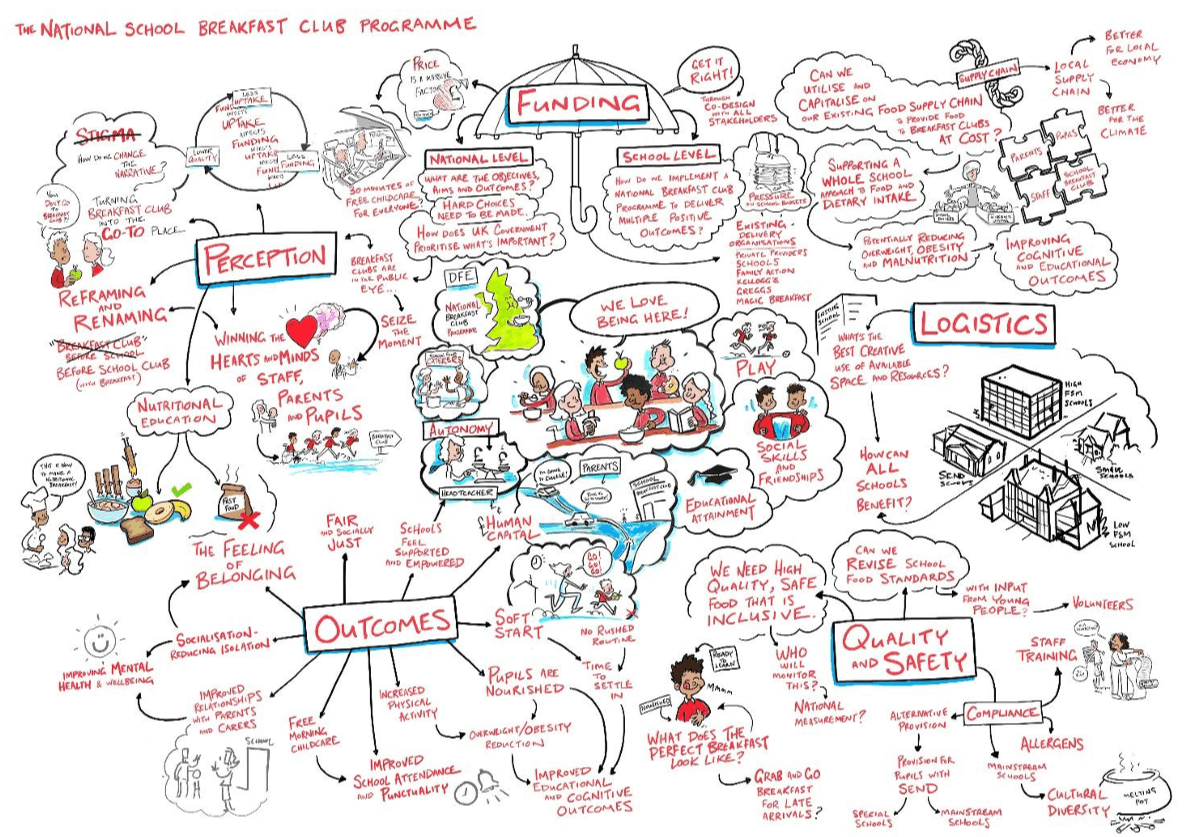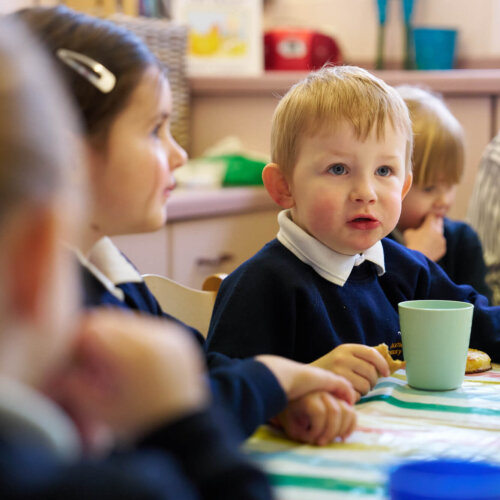A recent workshop brought together a diverse group of experts to help shape the future of school breakfast clubs in England, aiming to maximise their positive impact on children, families, and schools. Magic Breakfast were delighted to invite the Healthy Living Lab from Northumbria University to facilitate the workshop.
This collaborative effort, detailed in the published report, explored how to build on existing provisions and create a more cohesive and effective national programme. The workshop was sparked by the Department for Education’s (DfE) commitment to delivering a national programme, which guarantees 30 minutes of free childcare before the school day alongside a nutritious breakfast for all primary-aged pupils in state-funded schools.
The workshop brought together stakeholders from government, businesses, charities, schools, caterers, and academia. Their collective goal was to develop a framework that supports the DfE’s rollout, improves engagement, and drives positive health, educational, social, and economic outcomes.
Crafting a collaborative framework
The core of the workshop focused on identifying challenges in implementing the new national programme and collaboratively devising creative solutions and practical actions. Participants engaged in activities to map their roles in the primary school food system, prioritise challenges, and brainstorm ‘what if’ and ‘how might we’ propositions to address them. The discussions also considered the impact of these challenges and solutions on various stakeholders, including pupils, parents, school staff, and catering staff, using research-informed user stories to stimulate thinking. A key output of this collaborative work was a visual illustration of a potential school breakfast club programme framework, refined through group discussion.

Key takeaways and a vision for the future
The workshop yielded valuable insights into optimising the new breakfast club programme. A significant theme was the importance of integrating the new programme with existing school food and childcare services to add value for both parents and pupils. For instance, discussions explored how school caterers could provide food at cost to maximise budgets and ensure compliance with School Food Standards, while also reducing administrative burdens on schools.
A crucial point highlighted was the need for a ‘whole school food approach’, moving away from siloed programs (like separate breakfast, fruit and veg schemes, and school lunches) towards a coherent system centred on the child. The report strongly recommends that the DfE consider a unified funding approach that encompasses wraparound care, all school food, food-related projects, and food education. This co-designed approach, incorporating the voices of teachers, parents, and staff, is believed to enhance efficiencies and outcomes, and aligns with UN Sustainable Development Goals.
The workshop also acknowledged potential challenges, such as ensuring children who arrive ‘just in time’ for school don’t miss out on breakfast. Recommendations included offering flexible options like soft-start classroom-based breakfasts or extended childcare periods to accommodate working parents.
This initial workshop is part of a larger research effort, with findings from a subsequent workshop involving school staff, parents, and pupils published separately. The overarching message is clear: by working together and adopting a holistic, well-funded approach, the new national school breakfast club programme can significantly improve the opportunities and wellbeing of children across England.






